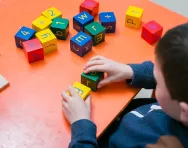Important update from TheSchoolRun
For the past 13 years, TheSchoolRun has been run by a small team of mums working from home, dedicated to providing quality educational resources to primary school parents. Unfortunately, rising supplier costs and falling revenue have made it impossible for us to continue operating, and we’ve had to make the difficult decision to close. The good news: We’ve arranged for another educational provider to take over many of our resources. These will be hosted on a new portal, where the content will be updated and expanded to support your child’s learning.
What this means for subscribers:
- Your subscription is still active, and for now, you can keep using the website as normal — just log in with your usual details to access all our articles and resources*.
- In a few months, all resources will move to the new portal. You’ll continue to have access there until your subscription ends. We’ll send you full details nearer the time.
- As a thank you for your support, we’ll also be sending you 16 primary school eBooks (worth £108.84) to download and keep.
A few changes to be aware of:
- The Learning Journey weekly email has ended, but your child’s plan will still be updated on your dashboard each Monday. Just log in to see the recommended worksheets.
- The 11+ weekly emails have now ended. We sent you all the remaining emails in the series at the end of March — please check your inbox (and spam folder) if you haven’t seen them. You can also follow the full programme here: 11+ Learning Journey.
If you have any questions, please contact us at [email protected]. Thank you for being part of our journey it’s been a privilege to support your family’s learning.
*If you need to reset your password, it will still work as usual. Please check your spam folder if the reset email doesn’t appear in your inbox.
Settling a child with SEN back into school

After a long summer at home, many children have cold feet about going back to school in September. But for children with special educational needs (SEN), returning to school can be particularly stressful.
‘Life is usually more relaxed over the holidays, and children get a break from the things that they find difficult at school, like sensory overload and social issues,’ explains Dr Mark Brown, special needs consultant at Special Help 4 Special Needs.
As the return to school gets nearer, their anxiety may grow as they think about all the challenges they’ll have to face.


Boost your child's maths & English skills!
- Follow a weekly programme
- Maths & English resources
- Keeps your child's learning on track
What might children with SEN find hard about going back to school?
Every child is different, but there are some common areas that can pose difficulties as children with SEN prepare for the return to school and tackle the first few weeks of term.
Social interaction
Many children with SEN, including those with autism, communication difficulties and developmental delays, find the social side of school challenging.
They might struggle to make eye contact, take part in conversations, understand the rules and conventions of play, or have trouble regulating their temper, for example.
Separation anxiety
For some children, being away from their parent or carer can cause extreme anxiety, especially when coupled with social relationships not coming naturally.
‘This can be a particular issue after the summer holidays, when they’ve got used to their parents being nearby,’ says Dr Brown. In some cases, it can escalate to school refusal.
New faces
Your child is likely to have to get used to a new teacher – potentially a new teacher to the school – new teaching assistant and possibly new children joining their class.
‘Having a different teacher can be difficult, especially if they don’t understand the finer details of their needs,’ Dr Brown explains. ‘For example, if your child struggles with making eye contact and avoids looking at their teacher, it might be perceived as them being rude.’
Katherine is mum to Adam, who has ADHD, autism and dyslexia. 'His worries about returning to school are mainly concentrated around the prospect of new teachers,' she explains. 'He also says the people in his class bully him.'
New environments
Getting used to a new classroom, new area of the playground, or even a new seat in class can be stressful for children who rely on familiarity.
There may also be unforeseen challenges in their new environment: for instance, a buzzing fluorescent light could be torture for a child with sensory difficulties.
New routines
Shifting from their summer routine to a more structured school schedule can be unsettling for the many SEN children who thrive on routine and find it tough to get used to changes.
'Adam doesn't care about how he's dressed, and after a summer of lazing about, going to school with pyjamas on under his clothes is a regular occurrence,' says mum Katherine.
Sensory challenges
Sensory issues are common in children with SEN, making school life overwhelming.
‘They could be affected by the feeling of their school uniform, noise in the classroom, bright lights, and even knowing how much pressure to put on their pencil,’ says Dr Brown.
‘Some children can mask how they’re feeling while others can’t hold it together, but either way, sensory issues can cause them actual pain and distress.’
Difficulty understanding and keeping up
This can be a real worry for many children with SEN, whether they have a developmental delay or issues that affect their ability to concentrate and process in class.
How might it affect their behaviour?
Stresses about returning to school – whether at the end of the holidays or once they’ve started back – can play out in children’s behaviour at home, for example:
- Meltdowns
- Shutdowns
- Shouting, screaming and physical violence
- Increase in obsessions
- Regression in toileting and other self-care
- Sleep problems, particularly getting to sleep
- Inability to comply with demands and requests
Preparing a child with SEN to go back to school
As the return to school approaches, there’s a lot you can do to ease your child’s distress and prepare them for going back into the classroom.
Talk to your child about what to expect
It’s important that your child knows as much as possible about what it’ll be like to go back to school and has a chance to express any worries, so make time for relaxed conversations.
‘It doesn’t have to be a big sit-down talk; in fact, it’s better to have these conversations while you’re doing something else, like driving the car, drawing, baking, or even playing computer games,’ Dr Brown advises.
‘Keeping it low-key, without eye contact, is likely to help them open up more, and you can encourage this by asking subtle questions; “I know the classroom is sometimes very noisy. Do you know what to do if you need a break?”’
Prepare them for new faces and places
Try to get hold of photos of your child’s new teachers, classroom and wider school environment to familiarise them with what they’ll be going back to.
You may be able to find some of these on the school’s website, or you could ask the school to provide them (ideally, do this at the end of the summer term so there’s plenty of time to prepare).
‘You can then put together Social Stories [short descriptions, with words and pictures, showing children what to expect] and show them to your child to familiarise them with their new teacher, where they hang their coat, and so on,’ says Dr Brown.
Arrange a visit
In most schools, at least some members of staff will be in school at the end of the holidays, just before the start of term, so ask if you and your child can pop in for a visit.
‘This means they can reacquaint themselves with the school environment, and you can make sure they know about places like quiet rooms where they can go if they’re struggling in class,’ Dr Brown explains.
Talk to their teacher and/or SENCO (special educational needs coordinator)
The more the staff know about your child, the better, so arrange a meeting so you can explain their needs and what the school can do to make things easier.
‘You can talk to them about the things your child is likely to struggle with, such as classroom noise, understanding instructions or coping with the social side of break time, and discuss what they could do to help, for example giving them movement breaks by handing out books, letting them use a fidget toy in class, or letting them have time out in a quiet space,’ says Dr Brown.
This is also your chance to talk through your child’s Individual Education Plan (IEP) or Education, Health and Care Plan (EHCP) to make sure everyone involved in their school experience understands what they need to succeed.
Practise putting on uniform
‘Children with sensory issues sometimes find wearing school uniform physically uncomfortable, so it’s a good idea to practise putting it on over the space of a few days, one item at a time, aiming for them to be able to wear the whole uniform by September,’ Dr Brown explains.
‘It’s also reasonable to ask their school if they can adapt the uniform to make it easier for your child to wear, for example by wearing black trainers rather than school shoes, or not wearing a tie.’
Involve them in decisions
Simply letting your child be involved in choosing their stationery or lunch box gives them some control over a situation that might feel unmanageable.
Use visual timetables
Visual timetables are pictorial representations of what to expect during the school day and when (lining up to go into class, taking the register, reading time, etc), and can be helpful for the many SEN children who need to know what’s happening and when.
‘It’s important that these are kept up to date, though, as leaving a three-day-old timetable on the wall and not following it can be more distressing,’ says Dr Brown.
Expect challenging behaviour at home
‘Many children are very good at masking their distress at school, but then have to let it all out when they get home,’ Dr Brown explains.
Although it can be difficult for the whole family, try to cut your child some slack if they’re having meltdowns or shutdowns at home. Often, it only takes one small thing, completely unrelated to school, to light the touch paper.
‘Remember that the behaviour often happens because of a build-up of anxiety, thoughts and feelings which we have to work through with the individual child,’ Dr Brown adds. ‘Even with a child who can verbalise their difficulties, we have to be detectives, trying to piece the evidence together in order to help them and us to understand what is happening.’
Keep talking
To your child, their teacher, their SENCO, their specialist: anyone and everyone who has an influence on their school experience.
It’s not at all unusual for your child to struggle to settle back into school, and sometimes, problems crop up that no one expected, but by keeping the lines of communication open, and being prepared to try new things if what you’re doing isn’t working, you can smooth the path and make school as positive an experience as possible for your child.








